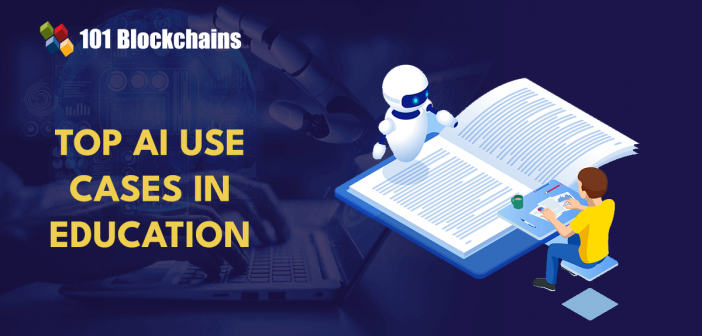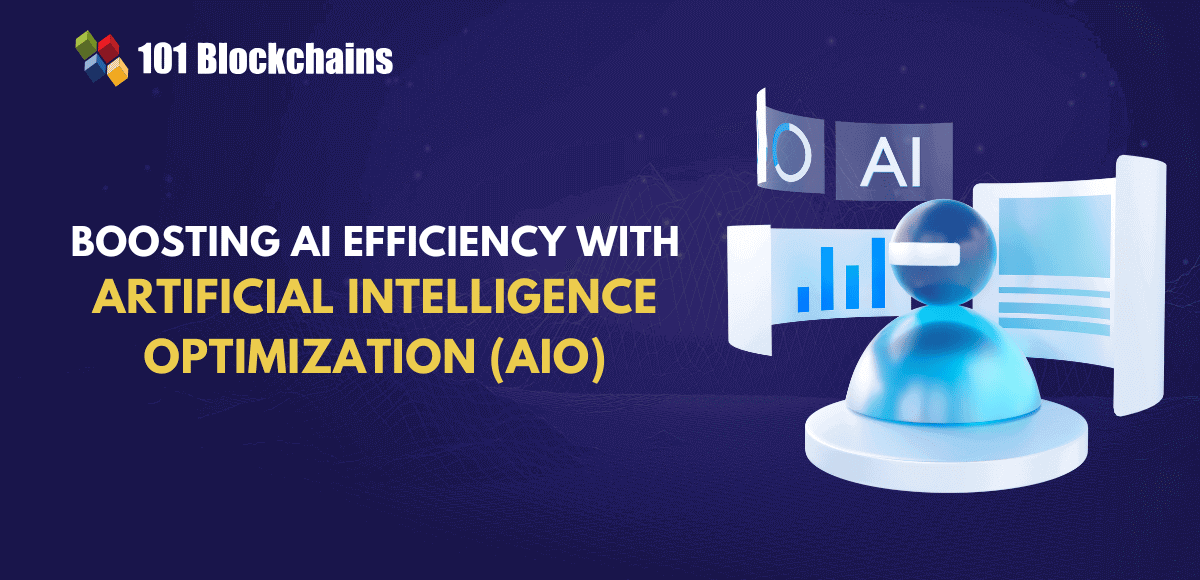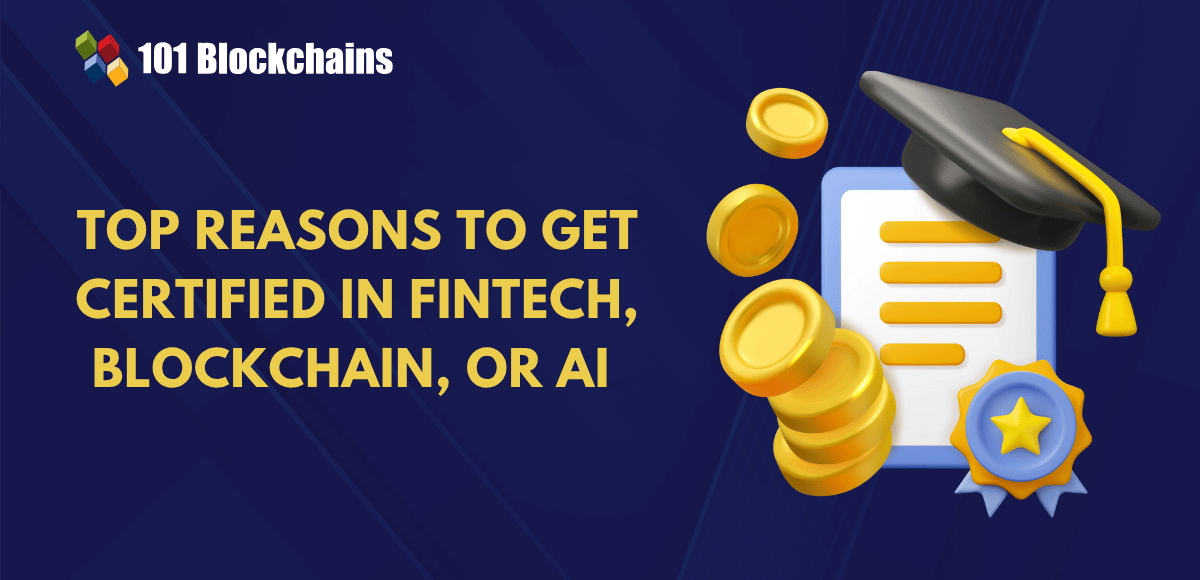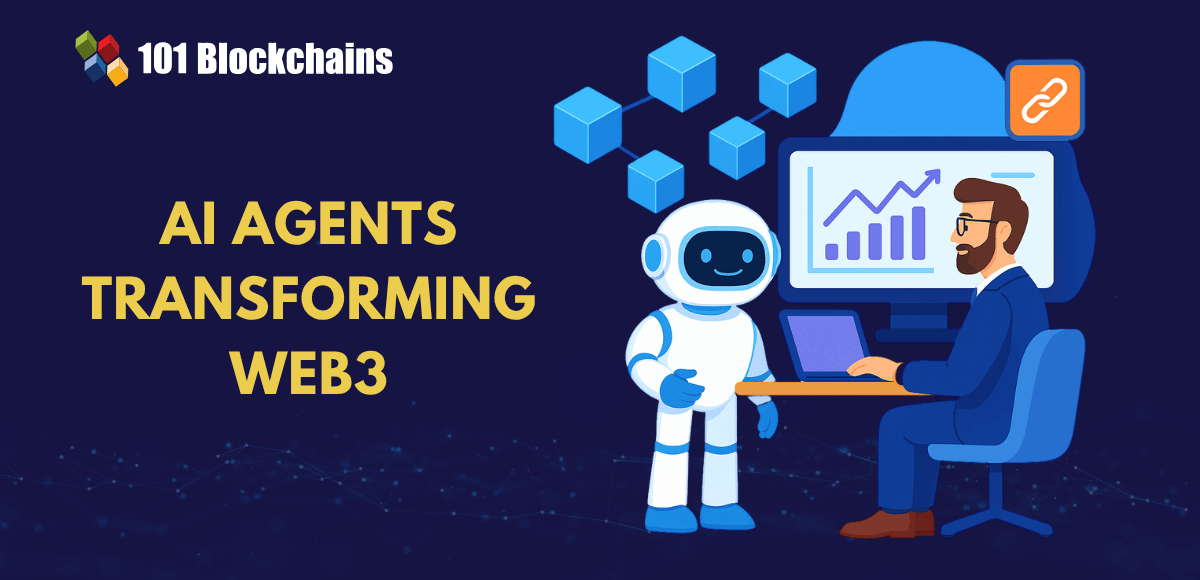Learn how blockchain truly works, master key definitions, and uncover what makes smart contracts so "smart." Dive into the fundamentals, gain valuable insights, and start your blockchain journey today!

- AI & ChatGPT
Georgia Weston
- on December 07, 2023
Top 5 AI Use Cases in Education
The impact of a global pandemic led to massive transformation in different sectors. One of the foremost highlights of the digital transformation initiatives started during the pandemic point at the adoption of innovative technologies. The most popular technology which emerged as a viable contender for maintaining competitiveness of businesses across different industries is AI. Interestingly, the use cases of artificial intelligence in education have garnered the attention of educators, students, and their guardians. Apparently, the investment in new technologies for education increased by almost $13 billion during the pandemic. As the world shifts towards normalcy after the pandemic, it is reasonable to evaluate the different possibilities for using AI in education.
One of the most common AI use cases in education would obviously draw references towards delivery of online classes. However, artificial intelligence has the capability to transform the learning experience of students alongside serving value advantages to teachers and institutions. Let us dive deeper into the impact of AI on education with five top use cases of AI in education and popular examples.
Importance of AI for Education
The review of artificial intelligence use cases would be incomplete without referring to AI use cases for education. AI has emerged as a disruptive force for different industries, which provides new definitions for conventional approaches to learning and working. Artificial intelligence could serve as a distinct approach to teaching humans, albeit without replacing teachers.
As a matter of fact, the top AI use cases in education aim at leveraging AI-assisted learning methodologies for education. New AI-based models can offer personalized learning experiences alongside automation of repetitive tasks. Artificial Intelligence or AI would have the potential to revolutionize education and transform it into a system that could help students in extracting their full potential.
The role of AI in education points to the improvements in learning outcomes of students alongside supporting teachers in development of better educational practices. AI could support different tasks, such as customized curriculums and automatic assignment grading. The investments for use cases of AI in education amounted to $2 billion in 2020.
UNESCO has claimed that the market capitalization of AI in education will reach $6 billion by 2024. On top of it, market research reports also suggest that the market size for artificial intelligence in education might reach $12 billion by 2027. It is also important to remember that AI is an important component for achieving one of the SDGs by UNESCO.
Want to develop the skill in ChatGPT to familiarize yourself with the AI language model? Enroll now in ChatGPT Fundamentals Course
Use Cases of Artificial Intelligence in Education
The significance of AI for education reflects the possibility of using AI to transform conventional practices in education. The interest in questions like ‘How is AI used in education’ has been soaring higher in recent times. As educators and institutions search for new ways to use AI in education, it is important to reflect on the actual adoption of AI for education.
Around one-third of students in US high schools use ChatGPT, while 43% of college students in the US use AI tools such as ChatGPT for learning. The potential of generative AI systems for generating new content is also one of the foremost highlights of utilizing AI in education. Let us take a look at the five most popular use cases of artificial intelligence in education.
-
Personalization of Lessons
The foremost benefit of artificial intelligence in education points to the flexibility for personalizing lessons. The list of AI use cases in education shows that personalized lessons could help students with the most effective learning outcomes according to their interests and requirements. AI algorithms could help in designing lesson plans by evaluating student data, such as skills, past performance, and feedback from students about course content.
AI-based systems could utilize such information to generate customized curriculum that could ensure better student engagement. As a result, AI could play a vital role in helping students achieve their full potential. Such types of approaches could be useful for students with learning disorders.
One of the AI use cases examples in education points to the generative AI tool, Speechify. The AI tool serves speech-to-text or text-to-speech translation services through the desktop or web-based interface. Such types of AI-based education tools are useful for children with learning disabilities like ADHD or dyslexia.
Students with learning disabilities could experience problems due to a lack of concentration, which makes it difficult to follow the course topics through reading. AI-based tools could help in transforming text content into speech notes, which students can listen to when they are bored.
Take your first step towards learning about artificial intelligence through AI Flashcards
-
Developing Course Content
The next addition among benefits of AI in the world of education points to development of content for training courses. Generative AI could support the creation of new teaching materials for training courses, such as exercises, questions, summaries, or explanations. The role of AI in education could help teachers in creating different types of training content for their students.
With the help of AI, teachers can develop brand-new or modified content by using the original content. In addition, generative AI could also help in development of additional learning resources to support the content in the main course. The additional learning resources could include discussion questions, reading lists, summaries, study guides, and flashcards.
The outline of most common AI use cases in education also draws attention toward the ability of AI to generate scripts for podcasts or video lectures. As a result, AI could play a crucial role in simplifying the process of creating content for online training courses. The use cases of AI for education also focus on the abilities of generative AI for image generation.
For example, teachers could generate images with special features that could match specific course requirements. One of the pioneer AI platforms in education, NOLEJ, can help you generate an e-learning capsule within three minutes. Users can provide any topic as input, and the AI tool will generate the e-learning capsule that includes a glossary, interactive video, summary, and practice questions for the topic.
Interestingly, many other popular companies have been leveraging AI to generate content that could support their primary offerings. For example, a language learning platform, Duolingo, utilizes GPT-3 for correcting French grammar mistakes and creating questions for English tests. According to Duolingo, the implementation of GPT-3 has helped in improving the writing skills of customers in French language.
Want to understand the importance of ethics in AI, ethical frameworks, principles, and challenges? Enroll now in the Ethics Of Artificial Intelligence (AI) Course
-
Administrative Task Automation
The review of AI use cases in the domain of education also draws references toward the facility for automation of administrative tasks. Most of the responses to ‘How AI is used in education’ focus on the limitations for students and educators. Almost 77% of educators perceive the lack of time and resources as barriers to achieving their full potential.
For instance, teachers have to go through the submissions of each student carefully for grading assignments. As a result, teachers would spend more time grading, which they could have otherwise used for working with students. The applications of artificial intelligence in grading systems could help in reducing the time required for grading assignments by 90%. On top of it, the time required for overall grading process can be reduced by almost half.
Artificial intelligence could also transform administrative tasks with the introduction of smart student enrolment technologies. Educational institutes have to review every enrolment application manually and choose suitable candidates alongside approving financial aid and scholarships.
The top AI use cases in education could show the importance of AI predictive systems for automation of application review tasks. As a matter of fact, universities have reported significant growth in enrolment yields. The use of AI for task automation could help in digital transformation of the process of managing documents.
Want to learn about the fundamentals of AI and Fintech, Enroll now in AI And Fintech Masterclass
-
Personal Tutoring
The collection of artificial intelligence use cases in the field of education could not miss the advantages of personal tutoring. Generative AI could help in creating environments for virtual tutoring, which could help students interact with a virtual tutor. In addition, students could also receive real-time support and feedback.
Such types of examples in a list of AI use cases in education show that artificial intelligence could help students who could not access personal tutoring services. Private tutoring has multiple advantages of personalization for learners. For example, private tutoring for children with reading difficulties could improve their reading skills by almost 50% in one year.
The process of delivering private tutoring services to students can be a challenging process. On the other hand, generative AI could help in tackling the problem by developing virtual and immersive training environments. The AI use cases examples in such situations would point at entries like TutorAI.
It provides an educational platform for generating interactive content on different types of topics. Furthermore, generative AI could also support tutoring use cases of AI through implementation of chatbots. For example, ChatGPT offers a conversational AI chatbot for highly personalized conversations regarding education.
The outline of the use cases of artificial intelligence in education shows that personal tutoring with AI chatbots would introduce additional benefits. First of all, AI chatbots could offer round-the-clock support to students as well as parents, alongside helping students with homework. Generative AI could also help in freeing up time for teachers to focus on tasks such as lesson planning and grading.
Excited to learn the fundamentals of AI applications in business? Enroll now in the AI For Business Course
-
Improved Tutoring Experiences
Artificial intelligence serves as a powerful tool for improving the learning experiences of students. AI tools could help students understand complex subjects alongside presenting simple explanations for better learning experiences. One of the most popular examples for improving tutoring experiences points at Microsoft Math.
It provides a different perspective on the role of AI in education with the effective use of Optical Character Recognition or OCR technology. Microsoft Math is an OCR-based application that can identify the mathematical equations in an image and delivers the right solution. Most important of all, Microsoft Math also offers a comprehensive step-by-step description of the solution with interactive graphs and explanations.
The AI application of Microsoft focuses on mathematics only. You could find many other AI solutions which offer a comprehensive learning experience for students. For example, Cognii has developed virtual assistants which utilize advanced NLP techniques for interacting with students through chatbots.
Such types of entries among most common AI use cases in education are better than normal conversational AI. Artificial intelligence could also offer formidable improvements in-classroom experience for improving the quality of education alongside ensuring student engagement.
For example, computer vision technology can help in ensuring immersive visual learning. In addition, you could also find viable applications of augmented reality with AI for helping educators translate educational content to reality. Students could visualize how a volcano works or how food passes through the digestive tract of an individual through AI applications.
Enroll in our Certified ChatGPT Professional Certification Course to master real-world use cases with hands-on training. Gain practical skills, enhance your AI expertise, and unlock the potential of ChatGPT in various professional settings.
Challenges for Adopting AI in Education
The responses to ‘how AI is used in education’ also create concerns regarding the limitations of AI in education sector. Before you adopt AI solutions in the field of education, you must know about the challenges, such as inaccurate information. On top of it, contextual or conceptual discrepancies in the learning materials could affect the credibility of learning outcomes.
Students or teachers could also exploit AI for self-interest. For example, parents and educational institutes have expressed concerns about the use of AI tools like ChatGPT for cheating during exams. Most important of all, the risks of bias in educational materials could also present formidable setbacks for adoption of AI in the domain of education.
Become a master of generative AI applications by developing expert-level skills in prompt engineering with Prompt Engineer Career Path
Bottom Line
The introduction to some of the most popular use cases of AI in education shows the power of AI in transforming education. Artificial intelligence could provide a broad range of benefits, such as automation of administrative tasks and personalized lessons. In addition, the list of AI use cases in education also showcases the importance of adopting artificial intelligence.
The advantages of artificial intelligence in the domain of education help not only students but also teachers. For instance, teachers could find more time for important tasks by saving time on grading assignments. Learn more about AI fundamentals and how it can be a driving force for transformation in different industries.






